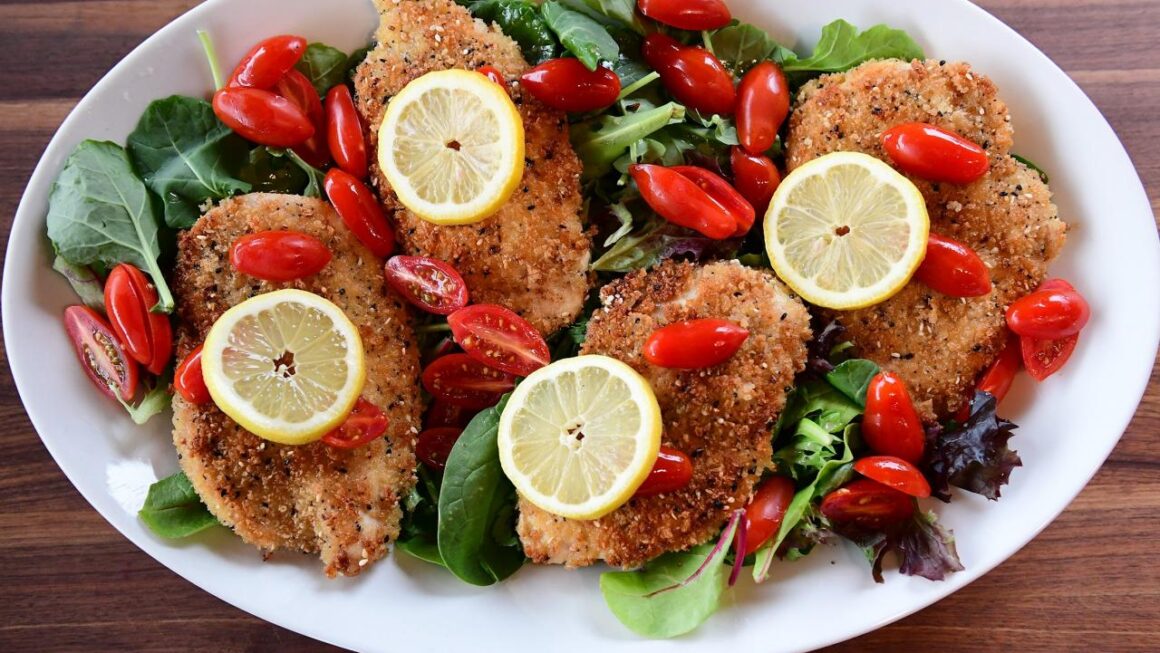Simple Cooking Tips for Beginners: Mastering the Basics
Cooking can be a delightful journey of discovery, creativity, and nourishment. However, for beginners, stepping into the kitchen can also seem overwhelming, especially with so many recipes, techniques, and ingredients to choose from. The good news is that learning to cook doesn’t have to be complicated or intimidating. By mastering a few basic techniques and adopting a relaxed approach, you can transform your kitchen experience into something enjoyable and rewarding. In this article, we’ll explore some simple cooking tips for beginners to help you feel more confident and comfortable as you embark on your culinary adventure.
1. Start with Simple Recipes
One of the best ways to ease into cooking is by starting with simple recipes that use minimal ingredients and straightforward techniques. Avoid overly complex recipes that call for specialized equipment or hard-to-find ingredients when you’re just beginning. Focus on dishes that you’re familiar with and comfortable making. A basic pasta dish, scrambled eggs, or a simple stir-fry are great examples of easy meals to start with. Once you’ve mastered the basics, you can gradually move on to more advanced recipes.
Key Tip: Choose recipes with five ingredients or less and a short list of steps.
2. Read the Recipe Thoroughly Before Starting
This may sound obvious, but one of the most common mistakes beginners make is jumping into a recipe without fully understanding what’s involved. Reading a recipe from start to finish before you begin will help you avoid surprises, such as realizing you’re missing a crucial ingredient halfway through cooking or discovering that a step takes longer than anticipated. It will also give you an opportunity to clarify any unfamiliar terms or techniques.
Key Tip: Double-check your ingredient list and cooking tools before you start.
3. Prep Your Ingredients in Advance (Mise en Place)
The French term mise en place means “everything in its place,” and it’s a valuable principle to follow in the kitchen. This practice involves prepping all your ingredients—such as chopping vegetables, measuring spices, and portioning out liquids—before you start cooking. This ensures that you won’t have to scramble to find or prepare something while your food is on the stove. It’s a great way to keep things organized and minimize the chances of making mistakes.
Key Tip: Have everything ready to go before turning on the stove or oven.
4. Invest in Basic Kitchen Tools
You don’t need an arsenal of fancy gadgets to cook well, but there are a few essential tools that can make your life much easier. Investing in a quality chef’s knife, a cutting board, a non-stick skillet, a large pot, and measuring cups and spoons will give you a solid foundation. These tools will not only make your cooking experience smoother but will also help you cook more efficiently. A sharp knife, for example, makes chopping vegetables quicker and safer.
Key Tip: Keep your tools simple but high quality—good tools make cooking more enjoyable.
5. Master Basic Knife Skills
Speaking of knives, learning some basic knife skills is one of the most useful things you can do as a beginner cook. Knowing how to chop, slice, and dice vegetables and other ingredients quickly and safely will improve your confidence in the kitchen. Start by practicing how to hold a knife correctly and learn the basic techniques for chopping onions, slicing garlic, and dicing carrots. Over time, you’ll find that your knife skills will become more efficient and intuitive.
Key Tip: Take it slow—focus on accuracy first, then speed will come naturally.
6. Taste as You Go
One of the simplest but most effective cooking tips is to taste your food as you cook. This helps you adjust seasoning and flavors to your liking and ensures that you’re on the right track throughout the cooking process. Whether you’re making a sauce, soup, or stew, tasting at different stages will help you avoid under-seasoning or over-seasoning, and it will allow you to make small adjustments before it’s too late to fix mistakes.
Key Tip: Don’t wait until the end—season gradually and taste often.
7. Seasoning is Key
Speaking of seasoning, many beginner cooks are often too cautious with salt, pepper, and herbs, resulting in bland or underwhelming dishes. Don’t be afraid to use these basic seasonings generously, but also learn the art of balance. Salt enhances the flavor of your ingredients, while pepper adds depth and spice. Fresh herbs like parsley, cilantro, or basil can bring brightness and freshness to a dish. Keep it simple: you don’t need a million spices to make food delicious, just the right balance of the essentials.
Key Tip: Start with salt and pepper, and gradually expand your spice collection as you get comfortable.
8. Don’t Be Afraid to Make Mistakes
Cooking is as much about experimentation as it is about following instructions. As a beginner, you will inevitably make mistakes—overcooking pasta, burning a sauce, or using too much salt. The key is to learn from these mistakes and view them as part of the process. Every chef started as a beginner, and with time, practice, and a willingness to experiment, your skills will improve. The important thing is to have fun and not get discouraged when things don’t go perfectly.
Key Tip: Embrace mistakes—they’re the best learning opportunities in the kitchen.
9. Learn the Basics of Cooking Techniques
Understanding basic cooking techniques can take you a long way as a beginner. Techniques like sautéing, roasting, boiling, and baking form the foundation of most recipes, and once you’ve mastered them, you’ll be able to tackle a wide variety of dishes. Start by learning how to properly sauté vegetables, boil pasta, roast chicken, or bake a simple cake. These techniques will give you the confidence to experiment with different ingredients and cooking methods.
Key Tip: Focus on mastering one technique at a time before moving on to something new.
10. Cook in Batches
Cooking in larger quantities than you need for one meal is a great time-saving strategy. Batch cooking allows you to prepare several meals in one go, meaning you’ll have leftovers that can be stored in the fridge or freezer for busy days. This is particularly helpful for beginners who may find it more efficient to cook less often. Soups, stews, casseroles, and grains like rice and quinoa are excellent for batch cooking, as they can be easily reheated and enjoyed later.
Key Tip: Double or triple a recipe to save time and reduce the need for daily cooking.
11. Organize Your Workspace
A cluttered kitchen can make cooking feel chaotic and stressful. Keeping your workspace clean and organized will not only make cooking easier but will also create a more enjoyable experience. As you cook, clean up as you go—wash dishes, wipe counters, and put away ingredients you’ve finished using. This will prevent mess from accumulating and will allow you to focus on the task at hand without feeling overwhelmed.
Key Tip: Keep your kitchen clean and clear for a stress-free cooking experience.
12. Know Your Ingredients
Getting to know the ingredients you’re working with can help you become a more intuitive cook. For example, understanding the difference between a vegetable that takes a long time to cook, like a potato, and one that cooks quickly, like spinach, will help you better time your meals. Familiarize yourself with different types of grains, proteins, and vegetables, and learn their cooking times and methods. Over time, you’ll be able to make substitutions or adjustments to recipes with confidence.
Key Tip: Experiment with a variety of ingredients and learn how each behaves during cooking.
13. Practice Portion Control
One common issue that beginners face is not knowing how much food to make. Cooking for yourself or a small group can lead to either too much or too little food. To avoid wasting ingredients or creating an overwhelming amount of leftovers, practice portion control by measuring out ingredients carefully. As you gain more experience, you’ll start to get a feel for the right quantities needed to serve yourself or others without excess.
Key Tip: Use measuring cups and spoons until you feel confident estimating portions by eye.
14. Use Fresh Ingredients Whenever Possible
The quality of your ingredients can have a significant impact on the flavor and overall success of your dish. Whenever possible, try to use fresh ingredients like vegetables, fruits, and herbs rather than relying solely on canned or frozen options. Fresh ingredients often have more vibrant flavors and better textures, which can make even the simplest dish taste extraordinary. However, frozen and canned goods can be excellent when fresh isn’t available, so don’t hesitate to use them when necessary.
Key Tip: Visit your local market for fresh, seasonal produce.
15. Be Patient and Have Fun
Lastly, remember that cooking is meant to be enjoyable, not stressful. Learning to cook takes time, and there will be moments when things don’t go as planned. Patience is key—give yourself room to grow, and don’t put too much pressure on yourself to get everything right immediately. Over time, you’ll gain confidence and find joy in experimenting with new dishes, ingredients, and techniques. Make cooking a fun and relaxing activity, and it will quickly become a rewarding part of your daily routine.
Key Tip: Take your time and savor the process—cooking is a journey, not a race.
Conclusion
Cooking doesn’t have to be a daunting task, even for beginners. By starting with simple recipes, mastering basic techniques, and being patient with yourself, you’ll quickly build confidence in the kitchen. Remember to enjoy the process, and don’t be afraid to make mistakes along the way. With practice and a few key strategies, you’ll be able to whip up delicious meals in no time. Happy cooking!




